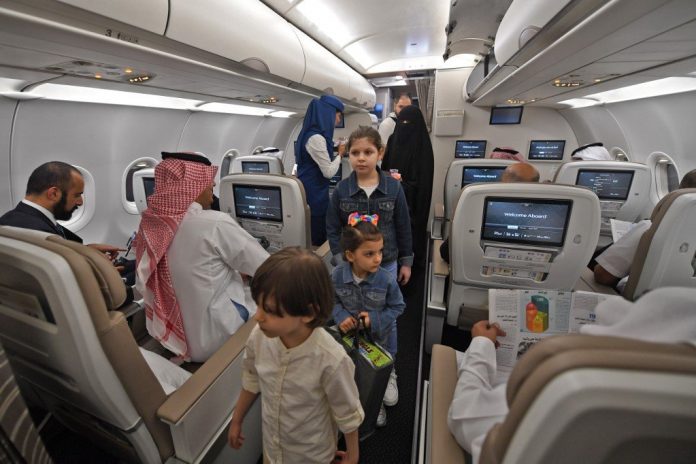RIYADH: Passenger airline traffic in the Middle East showed signs of improvement in October after a sudden slowdown in the summer due to the coronavirus disease (COVID-19) pandemic.
Figures released by the International Air Transport Association (IATA) revealed that the number of passengers flying on regional airlines in October was down 86.7 percent year-on-year compared to the same month in 2019, slightly better than the 89.3 percent drop in demand for September.
Globally, traffic was down 70.6 percent compared to October 2019, again a marginal improvement on the 72.2 percent year-to-year slump in September.
Alexandre de Juniac, the IATA’s director general and CEO, said: “Fresh outbreaks of COVID-19 and governments’ continued reliance on heavy-handed quarantines resulted in another catastrophic month for air travel demand.
“While the pace of recovery is faster in some regions than others, the overall picture for international travel is grim.”
Muhammad Ali Albakri, regional vice president for the IATA in the Middle East and Africa, told Arab News last month that Saudi Arabia and the Middle East would feel the economic impact of COVID-19 on the aviation sector for many years to come.
“Saudi Arabia, just like other countries, was impacted a lot because of its large networks. Saudi Arabia has around 94 international carriers flying in and out of the country, and all those were stopped,” he said.
He pointed out that, due to its strategic geographical position, the Middle East had a high degree of connectivity, with 1,060 routes as of April 2019. When all flights in, out, and within the Kingdom were grounded in March, it was severely impacted.
While domestic flights restarted in May and Riyadh has reported that the volume of traffic has recovered to nearly 60 percent, international flights are not due to restart until January at the earliest.
Nicholas Cole, CEO of DAA International, the Irish company which manages the domestic terminal at King Khalid International Airport (KKIA) on behalf of Riyadh Airports Co. (RAC), recently told Arab News he estimated that domestic passenger traffic would not return to 100 percent of levels seen before the COVID-19 outbreak until “the middle of next year.”
That was mainly due to the lack of international traffic feeding into the domestic flights and the reduction in pilgrims flying, he said.
Meanwhile, the general assembly of the IATA has elected Ibrahim bin Abdulrahman Al-Omar, the director general of Saudi Arabian Airlines, to serve as a member of the IATA board of governors for a period of three years.
The appointment was confirmed during the association’s 76th annual general meeting, which was held virtually in the Dutch capital Amsterdam on Nov. 24.

Airlines headed for $84bn net loss in 2020: IATAGlobal airline hit from coronavirus rises to $314bn, says IATA

